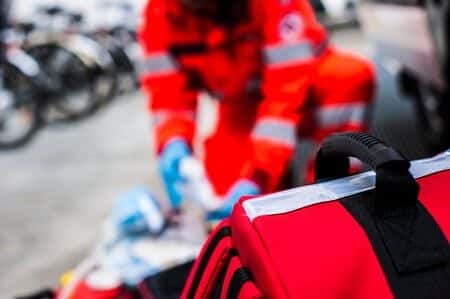Inexperienced Paramedic Incorrectly Intubates Patient
Updated on
Case Overview
This case involves a middle-aged female with a history of diabetes who suffered cardiac arrest in her home. Emergency medical services arrived on the scene within 15 minutes and the decision was made to intubate the patient. The paramedic who intubated the patient was new to the team and had no prior experience intubating patients in the field. He accidentally intubated the patient esophageally and she expired in transport to the hospital.
Questions to the Emergency Medicine expert and their responses
What is your experience intubating patients in the field?
As a paramedic, I use intubation as a means of securing the patient's airway. As part of continuing education, I complete an intubation skill-check every two years. I have completed or participated in a significant number of intubation procedures over my career in EMS. As a paramedic instructor, I have instructed students on intubation technique in mannequins and in live patients.
What safeguards exist to mitigate the complications that occurred in this case?
The gold standard in verification of tube placement is watching and documenting the tube passing the vocal cords. Next, we would assess for chest rise and fall to indicate that the tube is in the trachea. Third, we would auscultate over the epigastrium for air going into the stomach. We would then auscultate the lung field to assess for the passage of air in and out of the lungs. We can also assess capnometry or pulse oximetry, however, that assumes that the conditions for cellular respiration and perfusion exist. The protocols under which the paramedic operated would list which assessment tools that were to be used to detect an esophageal intubation. At a minimum, the provider should have been monitoring heart rate, skin color, pulse oximetry, capnometry and assessing lung before and after each movement of the patient.
About the expert
This expert has over 20 years of experience in the field of EMS and paramedic services. He received his BS in food science and technology from California Polytechnic State University and his MS in emergency health services from the University of Maryland. Today, he is also certified in advanced cardiac life support, pre-hospital trauma life support, basic life support, and ambulance coding. He previously worked as a paramedic at St. Vincent Hospital, as an EMS Instructor for the College of Southern Nevada, as the director of Lancaster County EMS, as a paramedic for FirstHealth of the Carolinas, and as a paramedic for the Ambulance Service of Bristol. Currently, this expert serves as the national dean of emergency medical services for a distinguished EMS training program in Tennessee.

E-117897
Specialties:
Subscribe to our newsletter
Join our newsletter to stay up to date on legal news, insights and product updates from Expert Institute.
Sign up nowFind an expert witness near you
What State is your case in?
Subscribe to our newsletter
Join our newsletter to stay up to date on legal news, insights and product updates from Expert Institute.


